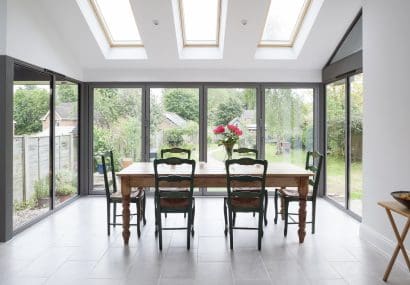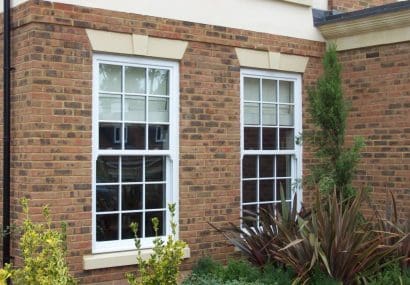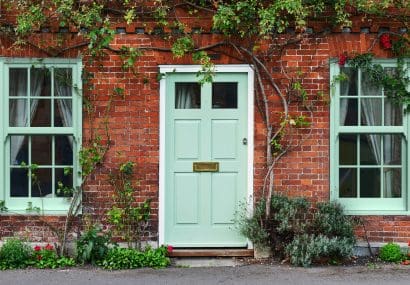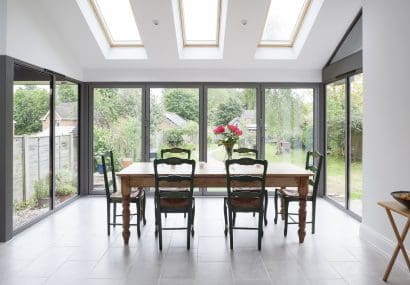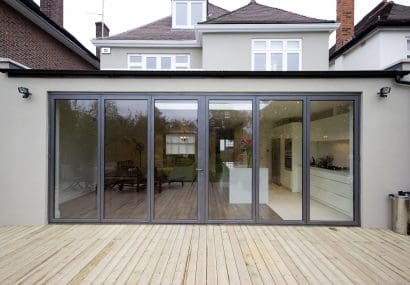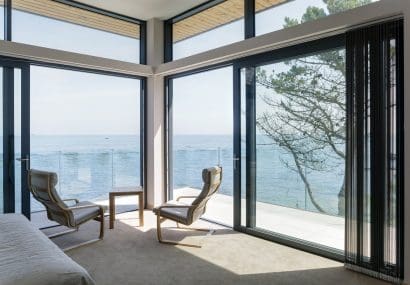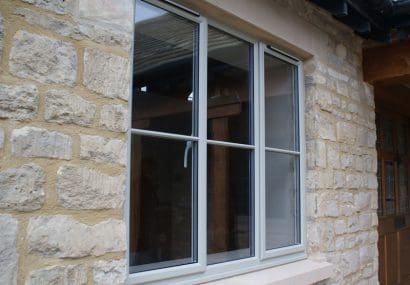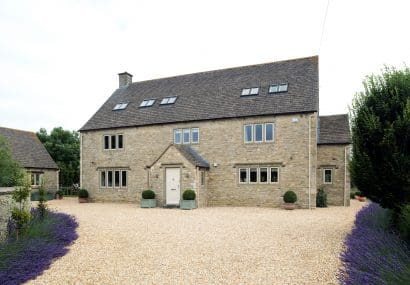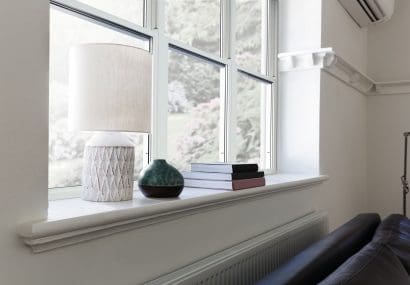Tips for introducing more natural light into your home
Posted: 29th July 2022
Ideas for Getting More Natural Light into the Home
Optimising the amount of daylight that enters a room is a key consideration for any indoor
space, wherever you are, but there are places – like here in the UK – where the issue is
perhaps felt more keenly than others. It not only makes a room feel brighter, more open and
welcoming, but it can also improve mental health by increasing the flow of the hormone
serotonin to your brain.
Today, the twin pressures of resource efficiency and the reality of the British climate make it
important to find a way to maximise the light that is there without compromising a home’s
aesthetics or its energy performance. Luckily, there are plenty of things you can do to
achieve this.
One of the more popular and effective solutions is the use of sliding or bi-fold doors.
Variations can be found in the architectural histories of several cultures dating as far back as
the first century CE, according to archaeological sites in ancient Pompeii.
So, the concept is nothing new, but thanks to innovations in design and technology and
advancements in our use of materials, we are able to make use of a time-honoured method
in a contemporary and sustainable way. If you think sliding or bi-fold doors have a place in
your future development plans, read on for a breakdown of the key benefits and differences.
Benefits of Bi-fold and Sliding Doors
While there are certain differences that are important to bear in mind when choosing
between the two – which we will touch upon a little later – there are also several gains
common to both:
Choice
Most companies offer both bi-fold and sliding doors in a variety of materials, such as wood,
UPVC and aluminium. Things like the size of the panes make a difference as to
recommended materials, so it’s always worth asking for the advice of your building
contractor before making a decision.
Strength
The frames are required to be strong enough to support large panes of glass, which are
themselves usually tempered, toughened or laminated. The material you use will determine
its required mass, which is why aluminium is often preferred to wood or vinyl.
Maintenance
As opposed to traditional window units which are usually made up of several smaller panes
– let alone the fiddly frames in between – each of the folding or sliding panels consists of
only one frame and one pane of glass, making the task of cleaning them a lot less time-
consuming.
Bringing the Outside In
What’s not to like about being able to enjoy the comforts of being indoors whilst admiring the
view of your outside environment? Whether it’s taking shelter from the unpleasant weather
or getting shade from the sun, the benefits of having a more seamless transition from
outside to in are considerable.
Resale Value
According to some industry experts, the addition of bi-fold or sliding doors to a property can
increase its resale value by 5-10 per cent. If you were thinking of selling your home soon, or
had plans for a redevelopment project, it could be that this increase in value could more than
recuperate the cost of having them fitted.
Differences Between Sliding and Bi-fold Doors
As mentioned above, there are several key differences between the two and making a
choice will very much depend on personal preference and the attributes that are more
important to you. The most common and distinctive of these differences are:
Aesthetics
One of the most significant variables between sliding and bi-fold doors is their glass-to-frame
ratio. While bi-folds can be opened more fully, when closed they have significantly more
vertical frame visible than sliding doors. In warmer climates, where the average daytime
temperatures are sufficient to have the doors open regularly, this aspect of its performance
might not be quite so important, but the reality of the British seasons makes it a central
question. Put simply: sliding doors may be a better option if maximum natural light and
wider views of your garden throughout the year are the priorities.
Space Requirements
Sliding doors tend to be made of two or more panes of glass which, when opened, slide
sideways to the end of the frame, running parallel to its original position. Bi-folds, on the
other hand, fold back against themselves – like a concertina – and run along a track on the
floor or ceiling or both. This means that a sliding door doesn’t project outwards when
opened, as opposed to the bi-fold, which requires space for the panels to be stacked into, at
a right angle to its original position.
Threshold
Bi-fold doors can be fitted flush to your floor whereas sliding equivalents will often require a
frame you will need to step over to go from indoors to outdoors. While to many a slight
obstacle might not be a deal-breaker, there are contexts in which the height of the threshold
can become a more pressing concern, such as ease-of-access for the very young and the
elderly and those who require the use of a wheelchair.
Cost
The difference in cost is minimal unless the doors get very wide. If the space is a big one,
sliding doors can become significantly more expensive due to the high cost of large single
units of glass.
Energy Rating
Sliding doors tend to be the more thermally efficient and the reason for this is twofold. Glass
is the strong point of any door and the frame is the weak point – thermally-speaking –
therefore the higher glass-to-frame ratio of the sliding doors makes them more efficient,
coupled with the fact that their profile is usually thicker, too.
In and Out Access
Bi-fold doors very often have a traffic door – a panel which can be opened like a normal back
door – meaning you are able to quickly nip in and out without having to slide a cumbersome
pane along a frame. Sliding doors do not have this feature due to the fixed nature of the
panes.
A Question of Preference
As with so many things in life, the type you choose will depend on the things you hold most
dear. Armed with the benefits and limitations of each, you can be better placed to make a
decision that best suits your needs.
